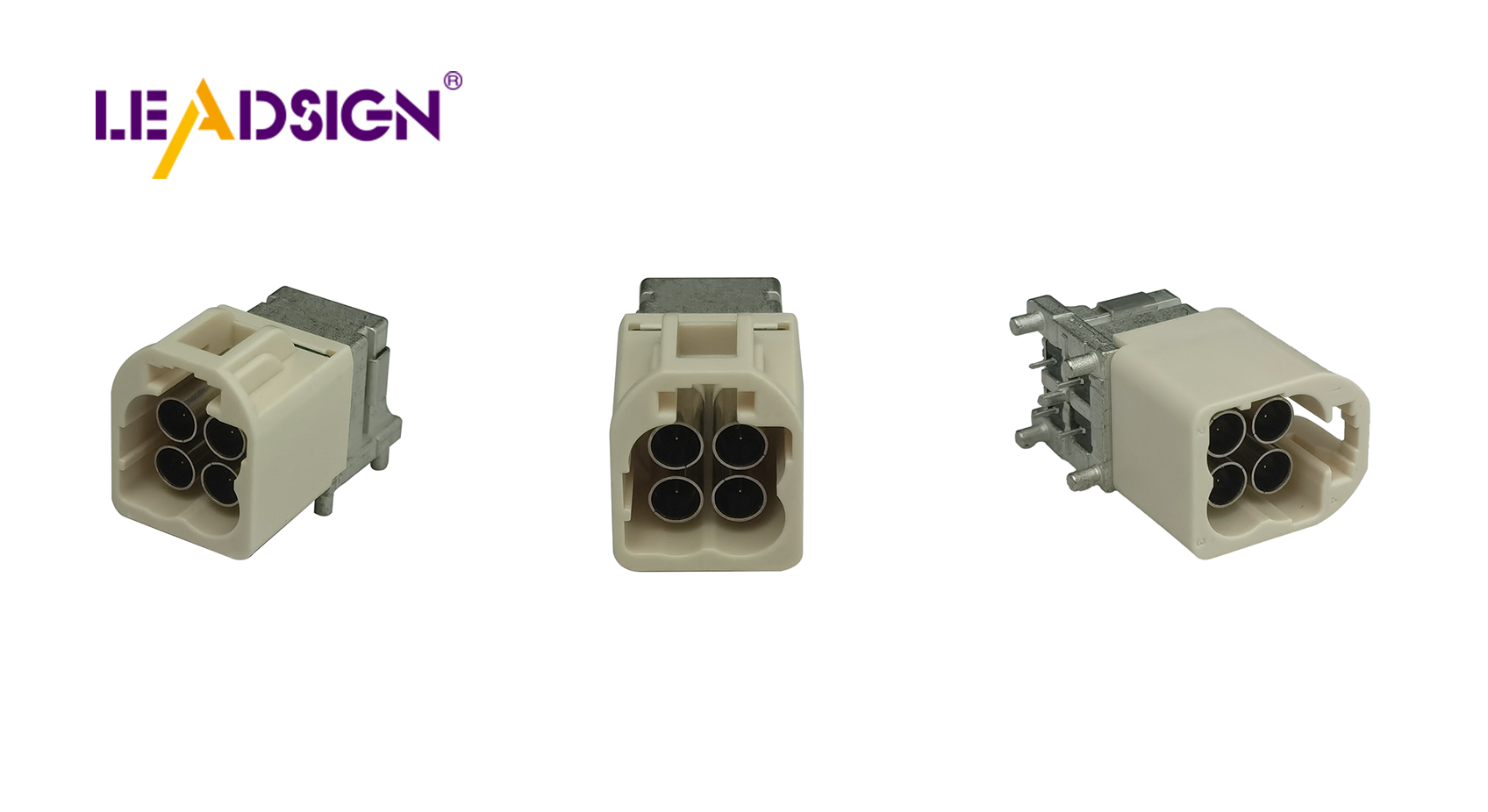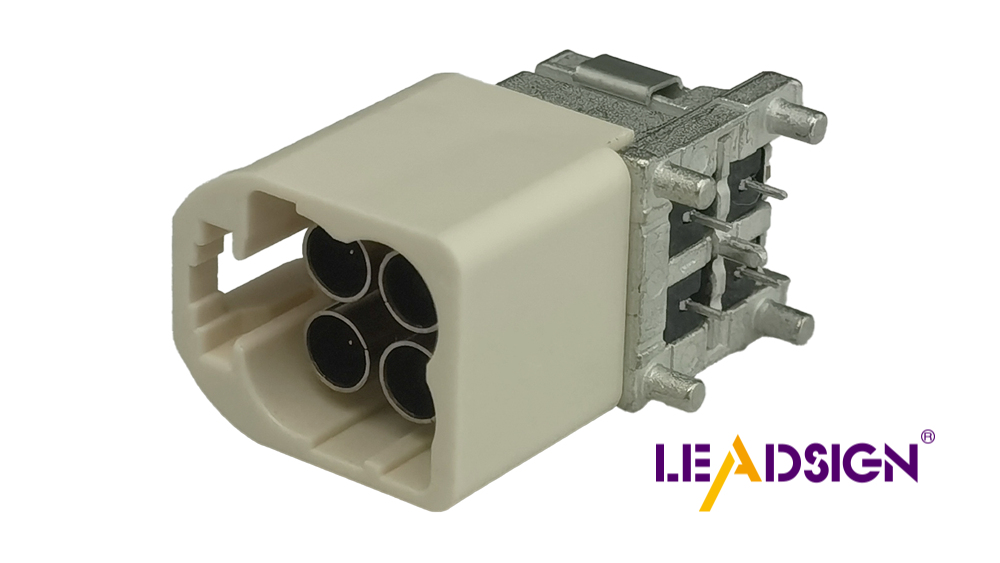Choosing the Right Automotive Wiring Connector Types

Selecting the appropriate automotive electrical connectors types for your vehicle is crucial. These connectors play a vital role in ensuring the smooth operation of your car's electrical systems. They are responsible for securely and safely connecting various components. Making the wrong choice can lead to significant issues, potentially more severe than those experienced in aircraft. There exists a variety of automotive electrical connectors types, each designed for specific applications. Opting for the correct type is essential to maintain the optimal performance and safety of your vehicle.
Understanding Automotive Electrical Connectors Types
What are Automotive Electrical Connectors Types?
Definition and purpose
Automotive connectors link parts in your car's electrical system. They help electricity move smoothly between different parts. These connectors come in many shapes and sizes, each for a specific job. You can find them in the engine, dashboard, and lights. Their main job is to keep connections safe and reliable so nothing breaks.
Common materials used
Different materials make up these connectors. Metals like copper and aluminum are common because they carry electricity well. Plastic covers the outside to protect from weather. Some have rubber seals to block water and dirt that cause rust.
Importance of Choosing the Right Connector
Impact on vehicle performance
Picking the right connector affects how your car works. The right one gives enough power to all parts like lights and ignition. The wrong one might cause power loss or damage, leading to bad performance or expensive fixes.
Safety considerations
Safety is why choosing the right connector matters too. A good connector stops shorts and overheating that can start fires. It keeps wires tight so they don't come loose and cause accidents. Picking the right one keeps everyone safe in the car.
Types of Automotive Electrical Connectors

Knowing about different automotive electrical connectors helps you pick the best one for your car. Each type has special uses, so choosing the right one is important.
Blade Connectors
Features and applications
Blade connectors are flat metal pieces that fit into slots. They connect wires to things like switches and fuses in cars. They are easy to use when you need to disconnect often.
Pros and cons
Pros:
Simple to use
Easy to find and cheap
Good for low power needs
Cons:
Not good if there’s a lot of shaking
Can't handle high power well
Bullet Connectors
Features and applications
Bullet connectors have a round end that fits tightly into a socket. They are used in car wiring to keep parts connected safely, even if there's some shaking.
Pros and cons
Pros:
Stays connected with some shaking
Easy to use
Works for many car uses
Cons:
Might need tools to attach
Not good for high power needs
Butt Connectors
Features and applications
Butt connectors join two wires together, making them longer or fixing them. They're strong and help your car's electric system work well.
Pros and cons
Pros:
Strong connection
Great for fixing or extending wires
Fits different wire sizes
Cons:
Needs tools to attach
Not made for taking apart often
When picking automotive electrical connectors, think about what you need them for. Each type has its own strengths and weaknesses, so knowing these helps you choose the best one for your car.
Pin Connectors
Pin connectors are important in car wiring. They link wires and parts securely. These connectors have a pin that fits into a matching socket, keeping the connection strong.
Features and applications
Pin connectors are great for many car uses. They hold tight where things shake, like engines or moving parts. You can easily plug them in or take them out, which is handy if you need to disconnect often.
Uses of pin connectors include:
Engine systems: Keep connections steady where there’s lots of shaking.
Lighting systems: Make sure headlights and taillights stay connected.
Dashboard electronics: Help connect different controls.
Pros and cons
Think about the good and bad when using pin connectors in cars.
Pros:
Strong connection: Pins fit sockets tightly for stable links.
Flexible use: Works well in many car areas.
Easy to handle: Quick to attach or remove, saving time.
Cons:
Low power limit: Not good for high-power needs.
Can wear out: Frequent use might cause wear over time.
Knowing about pin connectors helps you pick the right ones for your car. By looking at their pros and cons, you can choose what works best for safety and performance.
Things to Think About When Picking Connectors
When choosing car wiring connectors, think about important things for good performance and safety. These will help you pick the right ones for your car.
Electrical Needs
Current and Voltage Levels
Check how much electricity the connectors can handle. This tells you if they can work without getting too hot. For example, Power D SEAL-D® connectors can carry both small (5 amp) and big (20 / 40 amp) power in one connector. This makes them good for jobs needing both types of power.
Wiring Fit
Make sure the connectors fit your car's wires. The wire size should match the connector’s size to keep connections strong. Using well-fitting connectors stops electric problems and keeps things working well.
Environment Conditions
Heat and Water Resistance
Think about where the connectors will be used. Some, like Pin Connectors, are made for tough places. They keep out dust, water, and handle heat well. These features make them great for car electronics in hard conditions.
Shake and Hit Resistance
Car connectors need to handle shaking and hits, especially near engines. Pick ones that stop shaking from breaking connections. This is key to avoiding electric problems or dangers.
Putting In and Taking Care Of
Easy Setup
Pick connectors that are simple to set up. This saves time and avoids mistakes when putting them in. Simple designs like Blade Connectors are easy to use with few tools needed.
Upkeep Needs
Think about how often you need to check the connectors. Some need regular checks to stay good. Choose durable ones needing little care so they last long without needing many fixes.
By thinking about these things, you can pick the best car wiring connectors that fit your car’s needs for electricity, environment, and work tasks. Doing this carefully makes your car’s electric systems work better and safer.
Practical Tips for Picking the Right Connector
Checking What You Need
Looking at where you'll use it
To pick the right car wiring connector, first think about where you'll use it. Is it for the engine, dashboard, or lights? Each place needs something different. For example, engine connectors need to handle heat and shaking. But light connectors should be easy to plug in and out. Knowing what each part needs helps you choose a good connector that lasts.
Asking experts for help
Talking to experts can really help. People who know car electrical stuff can guide you on which connectors to pick. They explain technical details and if things fit together well. Experts also suggest trusted brands and products. Their advice helps you make smart choices and avoid problems later. Don't be shy to ask them when you're unsure.
Trying Out Connectors
Why testing is important
Testing connectors is key to see if they work for your car. Tests check if they handle electricity without getting too hot. They also see if they stay strong against things like water or big temperature changes. Testing finds problems before they mess up your car's systems. By making sure connectors work right, you keep your car safe and reliable.
Ways to test them
There are ways to test connectors. One way is the current rating test; it checks how much power a connector can take safely. Another is the environmental test, which puts connectors through heat, wetness, and shaking tests to see how tough they are. A mechanical test checks how strong and lasting a connector is too. These tests make sure the connectors will do well in real life.
Choosing the right car wiring connectors is very important. They help your car's electrical parts work well and safely. Think about things like weather and strength when picking connectors. Automotive Professionals say it's important to use connectors that can handle wet and hot places. If you're not sure, ask experts for help to choose wisely. Picking the right connector makes your car work better and keeps it safe from electrical problems while driving.
See Also
Significance of HSD Connectors in Automotive Sector
Value of Fakra Auto Connectors in Contemporary Cars
Fundamentals of HSD Connectors in Automotive Sector

